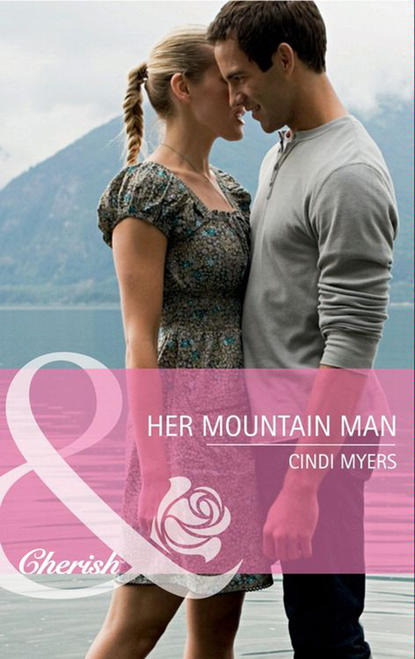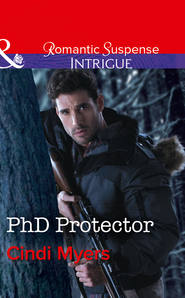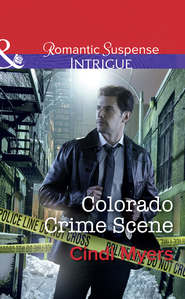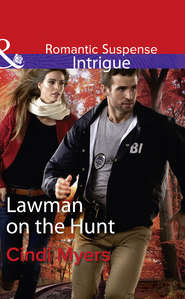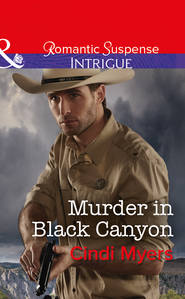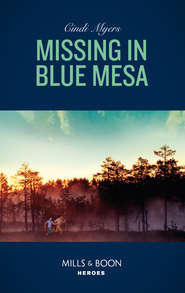По всем вопросам обращайтесь на: info@litportal.ru
(©) 2003-2024.
✖
Her Mountain Man
Автор
Год написания книги
2019
Настройки чтения
Размер шрифта
Высота строк
Поля
He began to roll up the rope, carabiners and harness. “Why don’t you use a ladder, like everyone else?” she asked.
“Because I don’t own a ladder. Besides, this is more of a challenge.” He stashed the gear in a box on the front porch. “Let me get my keys and I’ll drive you back to the hotel.” He glanced at her feet. “I can’t believe you walked over in those shoes.”
“I like to walk.” But she didn’t protest when he returned with his keys and motioned for her to follow him to the red Jeep Wrangler parked beside the house. Indy hopped into his customary place in the backseat, tail wagging.
“There are a lot of great trails around here,” he said as he backed the vehicle into the street. “But you might want to think about a pair of hiking boots. They wouldn’t go with your outfit, but they’d be a lot more comfortable.”
She ignored the remark and pointed to the dog. “Does she go everywhere with you?”
“He. Indy, after Indiana Jones. And yeah, he pretty much goes everywhere with me when I’m in town. When I’m on an expedition my neighbor keeps him for me. Do you have any pets?”
“No.”
“Not even a cat?”
“No.”
“I thought all single women in the city had cats or little dogs—like they came with the apartment.”
She laughed. “No.” Then sobering. “I had a cat once. Oliver. He got sick and died.”
“I’m sorry. That’s tough.”
“Yeah.”
“So you never got another one?”
“No. It was just too hard.”
They stopped at the end of the street. A pickup truck rumbled past on Main, the driver sounding three toots on his horn and waving. Paul returned the greeting. They passed two more pickups and another Jeep between his house and the Western Hotel and Saloon. Every driver slowed and waved, grinning at Paul.
“You have a lot of friends here,” she observed.
“I do, but they couldn’t care less about me today. They’re interested in you.” He parked at the curb and climbed out of the Jeep, motioning for Indy to stay. With a sigh, the dog lay down on the backseat.
“In me?” Sierra asked.
“Yeah. They want to know who you are, where you’re from, if you’re single and what are the chances they could score a date with you.”
“You’re putting me on.”
He held open the door for her. “An attractive young woman always draws attention in a small town where males outnumber females,” he said.
Every time Paul stepped into the Western Saloon he half expected to see John Wayne bellied up to the carved-oak bar. The tin ceiling, scuffed wood floors and brass spittoons looked straight off a movie set, but Paul knew they were the real deal.
“Are there really more men than women in this town?” Sierra asked as he guided her toward a booth at the back.
“Have been ever since it was founded by miners in the 1800s. Like those guys there.” He nodded to a black-and-white photograph of a group of solemn-faced men with elaborate moustaches that hung over the booth. “They came here planning to get rich and go home, but a lot of them ended up staying. There are a lot more women here now, but even more single guys. They come for the climbing and hiking and skiing and Jeeping and the outdoor lifestyle.”
“You don’t think women like those things?” she asked.
“Not as many, I guess.” He thought of her high heels and miniskirt. “You don’t strike me as the out-doorsy type.”
“Not really, no.”
The waitress, Kelly, sauntered over. “Hey, Paul.” She rested one hand on the back of his chair and smiled warmly. “What can I get you?”
“I’ll have a Fat Tire. What would you like, Sierra?”
“I’ll have a glass of water, thank you.” She arranged the small tape recorder, two pens and her notebook on the table in front of her.
He eyed the tools of her trade warily. Right after his discovery of Victor Winston’s body he’d been eager to talk to the one person who might understand the mixture of grief, admiration and frustration the find had kindled in him. He’d imagined Victor’s only child would understand his admiration for her father and that she’d be able to tell Paul things about his idol he’d always wanted to know. But Sierra was nothing like he’d expected.
He’d tried to find information about her online, but other than her byline on a few articles, he hadn’t discovered much. He’d imagined a tomboyish, outdoorsy type—a female version of the young Victor Winston.
Confronted with this beautiful, sophisticated, coolly businesslike woman, he realized how delusional he’d been. Why should this woman want to commiserate with him, much less share intimate details about her life with her father?
She switched on the tape recorder. “Tell me about Paul Teasdale,” she said. “I did a bit of research on the Internet, but I’d like to hear your story in your own words.”
He shifted in his chair. This was why he didn’t do interviews—he hated talking about himself. “What exactly do you want to know?” he asked.
“What led you to become a mountaineer?”
“I enjoy the challenge of climbing, and the sense of discovery. Mountains are one of the last frontiers left to us, remote and largely untouched by development.” He climbed places where he was likely the first man to ever set foot, and felt awed and humbled by the experience.
“You say you enjoy the challenge—so is it an adrenaline thing? You get a charge out of the risk?”
He frowned. “That makes me sound reckless. I’m not. My goal is always to climb safely.”
“Safety is a relative term at nineteen thousand feet.”
“Things have changed since your father’s day,” he said. “We have more high-tech gear now, though I prefer to climb without supplemental oxygen as much as possible.” He watched as she made note of this. “How technical do you want me to get here?” he asked. “I can bore you with descriptions of safety harnesses, if that’s what you really want to know.”
She looked up from her notes, hazel eyes meeting his, her expression troubled. “What I really want to know is what would lead a man to repeatedly risk his life on the side of a mountain?”
The question was less an accusation than a plea. Paul searched for some way to answer her. “Climbing mountains is only part of any climber’s life,” he said. “A big part, but the climbers I know aren’t irresponsible about it, whether it’s their job or their avocation.” He rearranged the salt and pepper, as if lining up his defenses against her probing looks and questions. “I don’t look at it as abandoning my responsibilities,” he said. “I mean, I don’t really have any.”
“So you’re single. No significant other?”
He shook his head. He hadn’t exactly avoided serious relationships, but his schedule—away half the year or more—made attachments difficult.
“What about your parents? Don’t they worry about you?”
“My parents have been my biggest fans. They’re very happy for me.” He paused while Kelly put down their drinks. Ordinarily he would have encouraged her to stay and chat, but Sierra didn’t seem to want to linger on niceties.
Her question about his parents fueled his curiosity, and he leaped at the opportunity to turn the conversation momentarily away from him. “What about you? Tell me about growing up with Victor Winston,” he said. “What was it like having such a legend for a dad? Did he share his love of mountains with you?”
It was her turn to look uncomfortable. “I’m supposed to be interviewing you, not the other way around,” she said.





